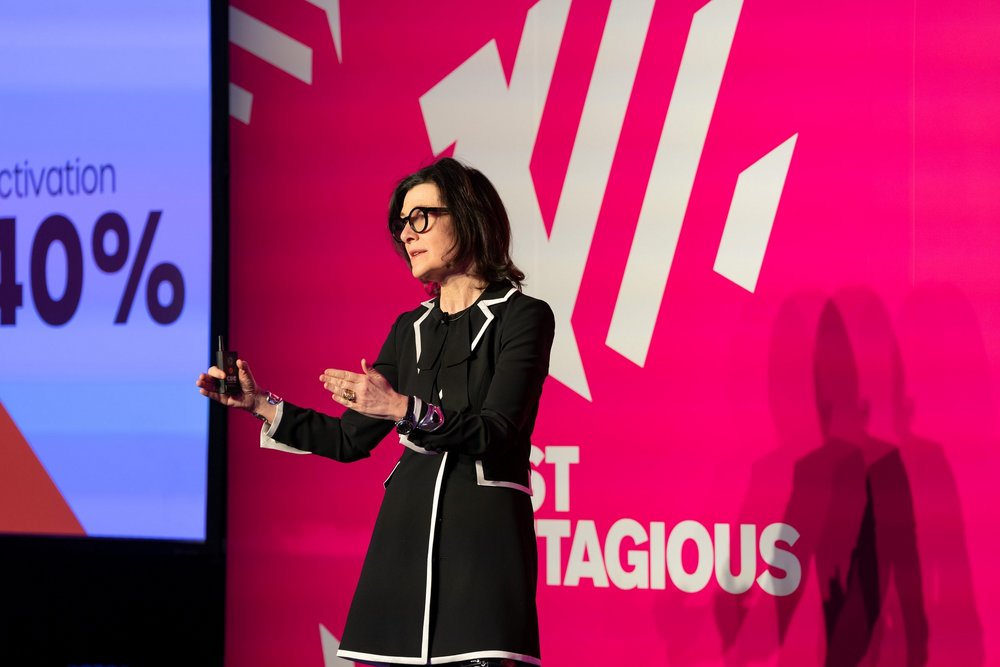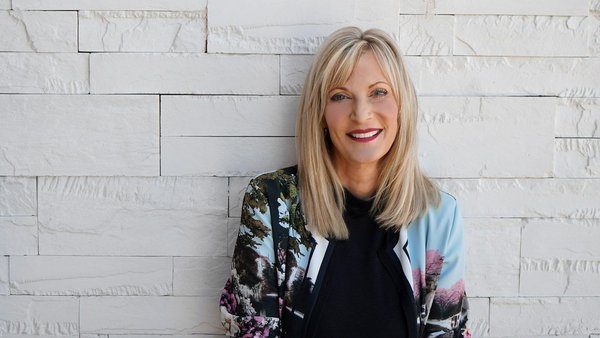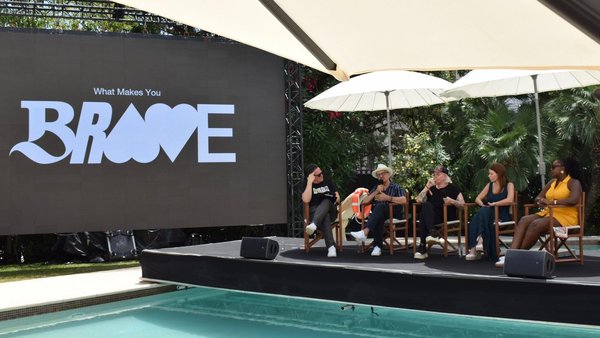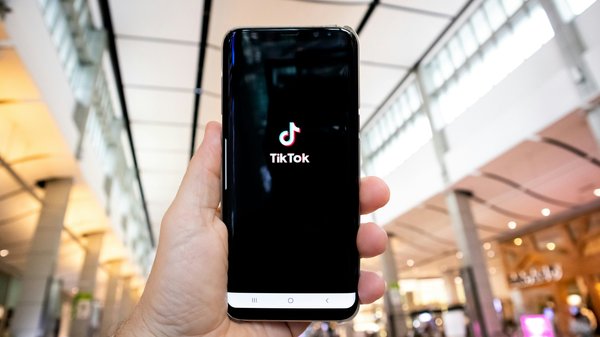Promoted content
Going from Brand-Huh to Brand-Yeah! /
The Weber Shandwick Collective’s chief executive officer, Gail Heimann, on how brands can be worthy of attention in the era of earned media.

We are living in an era of radical complexity and apathy according to The Weber Shandwick Collective’s chief executive officer, Gail Heimann, and if brands want people’s attention, they’re going to have to earn it.
Heimann was speaking at Most Contagious New York on 26 January, sharing insights from the Earned Effect Study conducted by The Weber Shandwick Collective (TWSC) in partnership with the Institute of Practitioners in Advertising (IPA), which explored the impact of campaigns that earn coverage and conversation on business performance. The study evaluated cases over a ten-year period across brands and categories.
We are living in an era of earned, which has arisen out of the collision of two main forces, stated Heimann.
Force number one is what Heimann described as the perma-crisis. It began in 2020 with a health crisis, and then there was a racial and equity crisis, a geo-political crisis, the climate crisis, a mental health crisis and an economic crisis – and the crises keep coming.
The second force is the media bombogenesis – a term taken from the weather world that describes a collision of pressures.
‘Media is fragmenting into different levels’, said Heimann, who added that audiences were fragmenting, too, resulting in almost endless amounts of content of varying quality.
The effect of the massive distractions presented by the perma-crisis and the torrent of content is that brands are struggling to cut through the noise and connect with people. Heimann said that according to the Harvard Business Review, 77% of people say they don’t have any relationships with brands, a state of affairs she refers to as the ‘brand-huh?’ movement.
What’s more, people are increasingly concerned about being followed around the internet. According to Scott Galloway, said Heimann, 84% of people do not want to be tracked online, a state of affairs she referred to as the ‘neo big-brother no thanks!’ movement.
To win in this convergence, crisis, complexity, apathy and endless obstacles to eye balls, Heimann advised, brands must instead seek to earn people’s attention. The Earned Effect Study found campaigns which had earned coverage and conversation were 53% more likely to drive very large business effects (like sales and market share) than those that had not, and 2.6 times more likely to achieve profit growth, as well as being more likely to drive things like brand awareness and loyalty.
And in order to earn attention, said Heimann, ‘what we put out into the world has to be real, it has to be meaningful and it has to add value…‘it’s not about storytelling but storydoing.’
Like all eras, this one has its luminaries. Heimann highlighted brands such as Patagonia and Aviation Gin making moves that showcase their worthiness to earn conversation. She also recognised Airbnb as a trailblazer in this era, given its ongoing brand building campaign offering once-in-a-lifetime experiences like staying in the world’s last Blockbuster or Carrie’s apartment from Sex in the City – a move that has helped the company weather the effects of the ongoing pandemic.
Winding down, Heimann offered five rules to follow when navigating the era of earned. First, Heimann explained that ‘brands must enter real conversations and not make up their own.’ Second, she said, brands should ‘aim to stand for someone.’.
The third rule was that marketers have to accept that they must be ‘perpetual learners’ in order to succeed in the earned era. Heimann also advised marketers to get used to the fragmented landscape because media polarization is ‘economically driven’ and here to stay. And Heimann’s final rule was that brands and agencies need to push harder to make work that matters. ‘We need to stop asking if it’s too much and start asking if it’s enough’.
Against this backdrop, the epic battle taking place between brand building and marketing activation will continue to smoulder and splutter, concluded Heimann, but marketers can still earn their way by making moves that add value. And the way to do that is by putting 60% of their budgets into brand building (with earned at the core) and 40% into precision marketing and activations.
Heimann ended her talk with a clip of director Ryan Murphy who was honoured at the 2023 Golden Globes Awards for the variety in his work that ranges from Glee, to Pose, to American Horror Story. In his speech, Murphy explains that he tries to accomplish one thing in his work, and that is ‘to make the invisible, visible’. This, Heimann says, perfectly sums up the era of earned.
The Weber Shandwick Collective (TWSC) is the earned-first strategic communications and consulting network built for the convergence of society, media, policy and technology. In addition to Weber Shandwick, TWSC brands include Cappuccino, Current Global, dna, Flipside, KRC Research, Powell Tate, Prime Weber Shandwick, Resolute Digital, Revive, ThatLot and United Minds. The Weber Shandwick Collective is part of the Interpublic Group (NYSE: IPG). For more information, click here.
Want more of the same? /
We don’t just write about best-in-class campaigns, interviews and trends. Our Members also receive access to briefings, online training, webinars, live events and much more.




